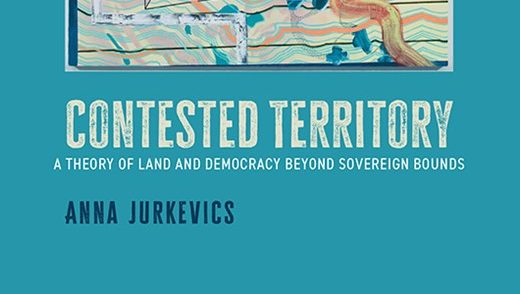Kael Kropp, Sydney Bartos and Karina Valcke-Beckett (MA’23) explored solutions to Vancouver’s housing crisis and climate change in a graduate course with Professor Kathy Harrison for their UBC Political Science master’s program.
- Kael Kropp
- Sydney Bartos
- Karina Valcke-Beckett
Their collaboration turned into a report detailing policy solutions that could reduce renters’ carbon emissions, titled “Why Canada needs a rental-unit energy report card.” The project was named the Best Project Prize at the CityStudio HUBBUB showcase this year.
We spoke to Kael, Sydney and Karina about their research report.
What is the primary issue with the current split incentive system?
Rental units present a unique problem incentivizing individuals to reduce their energy consumption. In most rental units, landlords are responsible for the energy infrastructure in the unit, whereas renters are responsible for the amount of energy used.
What typically motivates individuals to reduce their energy consumption – energy prices – is therefore only perceived by one actor. When renters pay their own utility bills, landlords have limited incentives to invest in energy-efficient infrastructure (e.g., heat pumps) to reduce costs. On the flip side, when landlords pay the utility bills, renters do not have an incentive to reduce their energy consumption (e.g., turning down thermostats).
Current price incentives, such as the carbon tax and infrastructure subsidies, are therefore insufficient to lower energy consumption in rental units. That is where the price transparency of a rental-unit Energy Report Card system comes in.
How would the Energy Report Card system be implemented?
The Energy Report Card system would be implemented as a mandatory component of rental listings, ensuring that prospective tenants have access to crucial information about a rental unit’s energy efficiency and its associated costs before signing a lease.
This transparency would empower renters to make informed decisions and encourage landlords to invest in energy-efficient upgrades.
Can you explain how the Energy Report Card would help housing affordability?
Absolutely! As mentioned above, an Energy Report Card system would ensure that prospective tenants have crucial information about the utility costs of a rental unit. Utility bills can sometimes add hundreds of dollars to the cost of a rental unit; however, this cost is not always transparent when signing a lease.
An Energy Report Card would ensure that prospective tenants know the cost of energy consumption in different units and allow them to compare the true cost of rental units when deciding where they want to lease.
In turn, landlords would be incentivized to invest in energy-efficient infrastructure to reduce costs and remain competitive on the rental market. Some landlords may also be interested in investing in infrastructure with low GHG emissions to attract renters who prioritize investing in low-carbon alternatives.
How much of an impact would the Energy Report Card have on Canada’s carbon reduction goal?
Housing, as a major contributor of greenhouse gas (GHG) emissions, offers a substantial opportunity for reductions. By improving energy efficiency in rental units, which make up a considerable portion of the housing market, the Energy Report Card could facilitate substantial reductions in GHG emissions. By incentivizing both landlords and tenants to prioritize energy efficiency, this initiative could significantly lower the carbon footprint of residential buildings.
If widely implemented, the reduction in energy consumption from the heating, cooling, and operation of rental properties could help Canada move closer to its goal of reducing GHG emissions by 40-45% below the 2005 levels by 2030. However, the exact impact would depend on the scale of adoption and the existing efficiency of the building stock involved.
About our alumni
Kael Kropp is completing his PhD in political science at McGill University as a SSHRC Canada Graduate Scholar, having previously earned his MA at the University of British Columbia. His research focuses on urban governance, public administration, and the spatial politics of land use.
Sydney Bartos is a communications professional in Toronto, ON. She earned her MA in political science at the University of British Columbia. Her research focuses on urban governance and climate policy.
Karina Valcke-Beckett earned her MA in political science from the University of British Columbia. Her research focuses on climate policy, public opinion and extreme weather events. She now works as a policy analyst.





